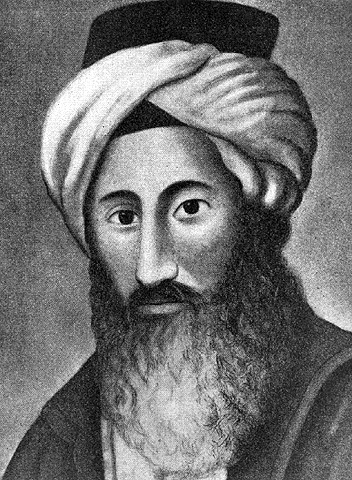Rabbi Chaim Yosef David Azulai (Chida)
(1724 - 1806)
 |
Rabbi Chaim Yosef David Azulai, known as Chida, was one of the most fascinating and multi-faceted figures in Jewish history. Born in Jerusalem, he became a scholar of the first rank and wrote classic works in halacha such as Shaar Yosef, Birkei Yosef and Machzik Beracha. He was associated with the kabbalist R. Shalom Sharabi and studied under R. Chaim Ibn Attar.
In 1753, at the age of 29, he traveled to Europe as an emissary of the communities of Eretz Yisrael and, again in 1772, on behalf of Chevron. Each trip lasted in excess of 5 years. He completed his second trip in Leghorn, where he remained for the rest of his life.
Wherever he visited, Chida made sure to inspect the important libraries and thus became familiar with many thousands of manuscripts. Out of these visits grew his remarkably compact and informative classic bibliographic and biographic work, Shem HaGedolim. In all, he wrote about one hundred volumes in every field of scholarship.
Over and above his learning, Chida was a radiant, impressive, yet remarkably modest personality. This shines through in the detailed diary of his trips, Maagal Tov. He attributes all the honor he received to the fact that he represented the Holy Land. And, he does not take insults lightly, as they may reflect on the honor of Eretz Yisrael.
He was interested and absorbed by all that he saw and heard in the many places that he traveled and was curious to learn about the new and exotic. He was careful not to insult anyone and to avoid controversy. He studied musar regularly and was always working to improve his character. He complained of those who only study Talmud and poskim and do not sufficiently appreciate the study of Tanach, Mishnah and musar. Chida learned of his wife’s passing while in Tunis and was forced to conceal her death for fear that the community would force him to remarry. Mourning in solitude he wrote that she was “perhaps unique in the generation...in wisdom, honor, powerful and awesome intellect, grace, beauty, great modesty and extraordinary cleanliness.”
Sources: Orthodox Union
Photo: Wikicommons Public Domain


